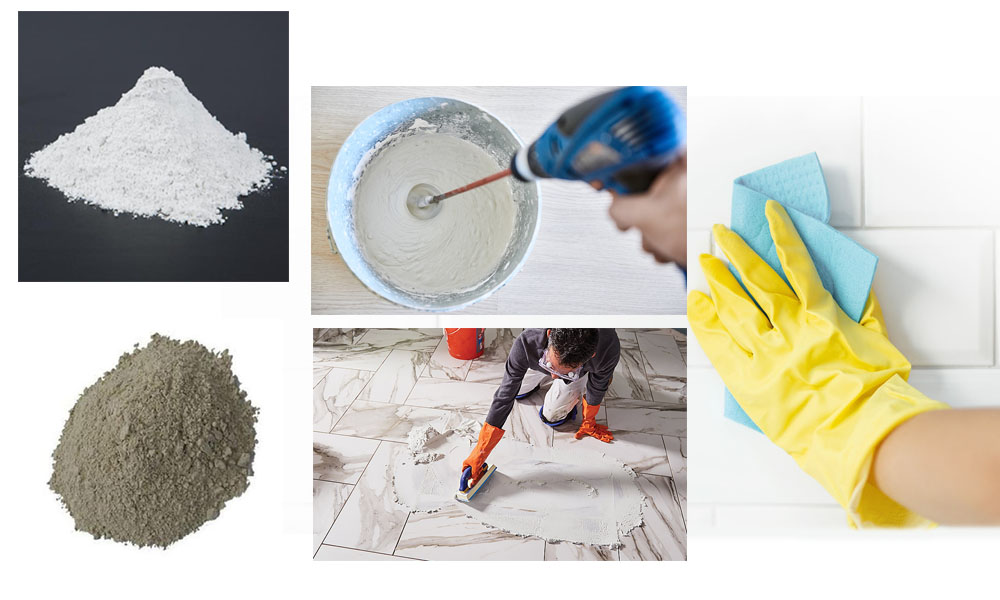Overview:

Tiles grout is a cementitious or polymer-based material used to fill the gaps between tiles during installation. It plays a crucial role in tile projects, as it not only fills the voids but also helps to secure tiles in place, prevents moisture infiltration, and enhances the overall appearance of the tiled surface.
Traditional tiles grout is a mixture of cement, sand, and water. However, modern grouts may also include additives like polymer resins to improve performance and flexibility. Grout fills the spaces or joints between tiles, providing structural support and preventing shifting or cracking. Properly applied and sealed grout helps to prevent water and moisture from seeping beneath the tiles, protecting the substrate and preventing mold or mildew growth.
Specification:
| PARAMETER | VALUE |
|---|---|
| Appearance | Cream coloured Powder |
| PH value | (1:10) 6.5 ± 0.5 |
| Solubility | Readily soluble in water |
| Solid content Minimum | 95.0 % |
| Bulk density | 0.45 – 0.55 gm/cc |
| Packaging Size | 40 Kg |
| Packaging Type | HDPE Bag |
| Brand | Addage |
Advantages:

Tiles grout offers several advantages, making it an essential component in tile installations. Here are the main advantages of using tiles grout:
- Structural Support: Grout fills the gaps between tiles, providing structural support and preventing the tiles from shifting or becoming loose over time.
- Stability: By securing tiles in place, grout ensures a stable and durable tiled surface, even in high-traffic areas
- Water Resistance: Properly applied and sealed grout prevents water and moisture from seeping beneath the tiles, protecting the underlying substrate from damage caused by water infiltration.
- Aesthetics: Grout comes in various colors, allowing you to choose a color that complements or contrasts with the tiles, enhancing the overall appearance of the tiled surface and creating different visual effects.
- Tile Alignment: Grout helps to maintain consistent spacing between tiles, ensuring a neat and uniform appearance.
- Easy Cleaning: Tiles grout, especially epoxy or urethane grout, is more resistant to staining and easier to clean compared to traditional cementitious grout, contributing to easier maintenance.
- Flexibility: Some types of grout, such as urethane grout, offer flexibility, making them suitable for areas with slight movement or temperature variations.
- Durability: Properly installed and maintained grout enhances the longevity and performance of the tiled surface, providing a long-lasting solution.
- Resistance to Chemicals: Epoxy grout and certain high-performance grouts offer excellent resistance to chemicals, making them suitable for areas exposed to harsh substances.
- Versatility: Tiles grout can be used in various tile applications, including walls, floors, countertops, and even swimming pools, making it a versatile solution for different projects.
- Cost-Effective: Considering the protection it provides to the underlying structure and the extended life it gives to the tiles, grout proves to be a cost-effective investment.
- Improved Hygiene: Grout prevents water and dirt from accumulating between tiles, promoting a cleaner and more hygienic environment, especially in areas like bathrooms and kitchens.
By choosing the right type of grout for your specific application and ensuring proper installation and maintenance, you can maximize the advantages of tiles grout and enjoy a visually appealing, long-lasting, and functional tiled surface.




